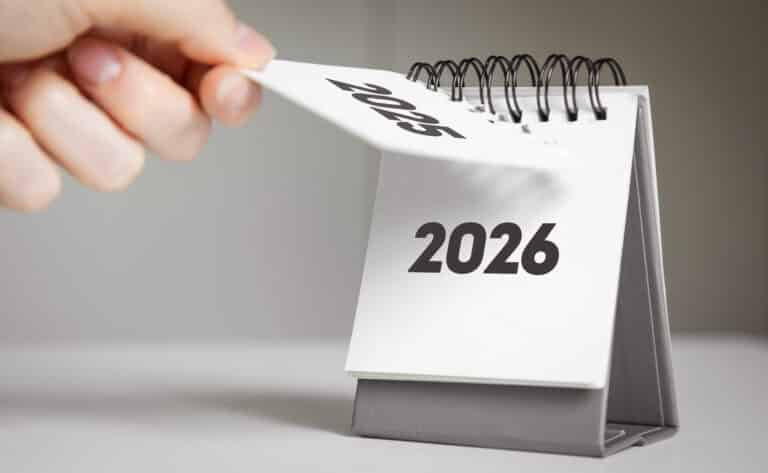Bipolar Disability Benefits
Home » Types of Disabilities » Musculoskeletal Disability Benefits
Living with bipolar disorder often means cycling between extreme highs and lows that can impede one’s ability to work steadily. Bipolar disorder is a disability under Social Security rules, but not everyone with the condition qualifies for benefits. If your symptoms are severe enough to prevent you from working, you may be eligible for financial support through disability benefits.
At National Disability Alliance, we understand how profoundly bipolar disorder can disrupt your life. Our team takes mental health claims seriously and can help you present the strongest case possible.
Why Choose National Disability Alliance
We make the Social Security process easier, fairer, and more effective for people with disabilities. When you work with us, you’ll have former SSA staff on your side who know how to navigate the system to your advantage.
The SSA may push back on your claim, but we won’t let that be the end of your story. Our advocates are prepared to address denials, present strong evidence in your favor, and take your case through every stage of appeal if needed. With our help, you’ll never face the complex disability system alone. You’ll also have peace of mind knowing someone is fighting for the benefits you deserve.
Our trusted representation is accessible no matter your financial situation. We charge no out-of-pocket fees for our services and only receive payment if the SSA approves your claim. Contact us today to initiate a free consultation.
How Bipolar Disorder Meets Disability Standards
Bipolar disorder is a mental health condition characterized by alternating periods of depression and mania or hypomania. These states can affect your mood, energy, and behavior in ways that make work and daily routines unpredictable.
Because of these challenges, the SSA recognizes bipolar disorder as a potentially disabling condition, evaluating it under Listing 12.04 of its Blue Book. However, approval depends on more than just a diagnosis. The SSA assesses the severity of your symptoms and their impact on your ability to work.
Types of Bipolar Disability Benefits
If bipolar disorder prevents you from working, you may be eligible for one or both of the SSA’s disability programs.
Social Security Disability Insurance, or SSDI, is available to individuals who have worked and paid into the Social Security system for a sufficient time to earn the required work credits. Supplemental Security Income, or SSI, provides benefits to disabled individuals with limited income and resources, regardless of their work history.
SSA Criteria for Bipolar Disability Benefits
The SSA’s Blue Book Listing 12.04 requires proof that your condition meets the medical criteria and causes sufficient functional limitations to prevent you from working. To meet the medical criteria, you must experience symptoms such as rapid speech, distractibility, risky behavior, depression, or difficulty adapting to changes in your environment. At least two years of medical records must be available to demonstrate that the condition is serious and persistent despite ongoing therapy or medication use.
The criteria also consider how those symptoms affect your ability to work. You may qualify for benefits if you have marked limitations in areas such as concentrating, interacting with others, setting realistic goals, keeping regular attendance, or regulating emotions in a work setting.
Meeting the Blue Book criteria provides the clearest path to approval. However, effective evidence of work-related limitations can still support your claim even if you don’t meet the listing exactly. Either way, claims for mental health conditions often face stricter scrutiny than other types of disabilities, so having legal representation can make a critical difference.
Building a Strong Disability Claim
Bipolar disorder affects people differently, and the SSA expects thorough documentation to understand your unique situation. Be prepared to provide treatment notes, medication history, and therapy records dating back to when your symptoms first appeared.
The evidence must show that you’ve made consistent, ongoing efforts to manage your condition, even if treatment hasn’t fully controlled your symptoms. Bipolar disorder’s symptoms can contribute to lapses in treatment, and the SSA should take that into account. If your records show care interruptions, provide a written explanation linking them to your condition’s challenges.
It also helps to include written statements from treating providers. Your psychiatrist, therapist, or primary care doctor can help describe how your symptoms impact your daily activities and work responsibilities.
If you haven’t already done so, track changes in your mood, sleep, energy levels, and daily functioning. Detailed personal symptom journals can provide real-world context that medical charts often miss.
Work With Our Disability Advocate
Despite the common misconception that it’s easy to get approved for benefits, mental health disability claims face some of the highest denial rates in the system. Bipolar disorder is a disability for Social Security purposes, but the SSA often rejects claims that technically meet the criteria. Many applicants struggle to provide the high level of documentation the SSA demands, and claims examiners may be quick to minimize the impact of mental health symptoms.
National Disability Alliance will provide professional support through the entire SSI or SSDI process. We recognize how bipolar disorder can greatly impact your life, and we will present that reality to the SSA. You can trust us to gather comprehensive documentation, file a well-supported application, and appeal denials on your behalf.
You’re not alone in your battle for fair benefits. To learn more about how we can help you, complete our online contact form or call 833-693-4722 for a free consultation.
FAQs
Explore our answers to common questions about disability benefits from individuals with bipolar disorder and their loved ones.
Can You Get Disability Benefits for Bipolar if Medication Helps?
Possibly. For many people with bipolar disorder, medication improves symptoms but doesn’t completely eliminate them. In that case, you may still qualify for disability benefits if your condition continues to interfere with your ability to work.
Why Are Bipolar Disability Claims Often Denied?
The SSA demands detailed evidence of functional limitations. This requirement can be particularly challenging in bipolar disorder cases and results in many unfair denials.
Due to its fluctuating nature, a person with the condition may seem fine one day but be unable to function the next. To a claims examiner who’s unfamiliar with bipolar disorder, this can create the impression that the condition is less severe than it really is.
Bipolar disorder symptoms are also quite complex. When a claim isn’t presented effectively, it might not be obvious how those symptoms would prevent a person from working. The right support can address these limitations.
How Long Does Approval Take for Bipolar Disability Benefits?
The timeline varies, but the SSA usually makes an initial decision within six to eight months after receiving an application. If the SSA denies your claim, the appeals process may add several additional months. Denials are common, so it often takes over a year to get approved for bipolar disability benefits.
Helpful Resources To Get You Started
Types of Disabilities
Learn which conditions qualify for SSDI and SSI – and how medical documentation plays a key role.
Types of Disabilities
Disability Benefits
Explore the benefits available through Social Security Disability and what you can expect to receive.
Disability Benefits
Application Process
A step-by-step look at how to apply for disability benefits – and how we can help simplify the process.
Application Process
FAQs
Have questions? Find quick answers to the most common disability questions we hear from applicants.
FAQs




